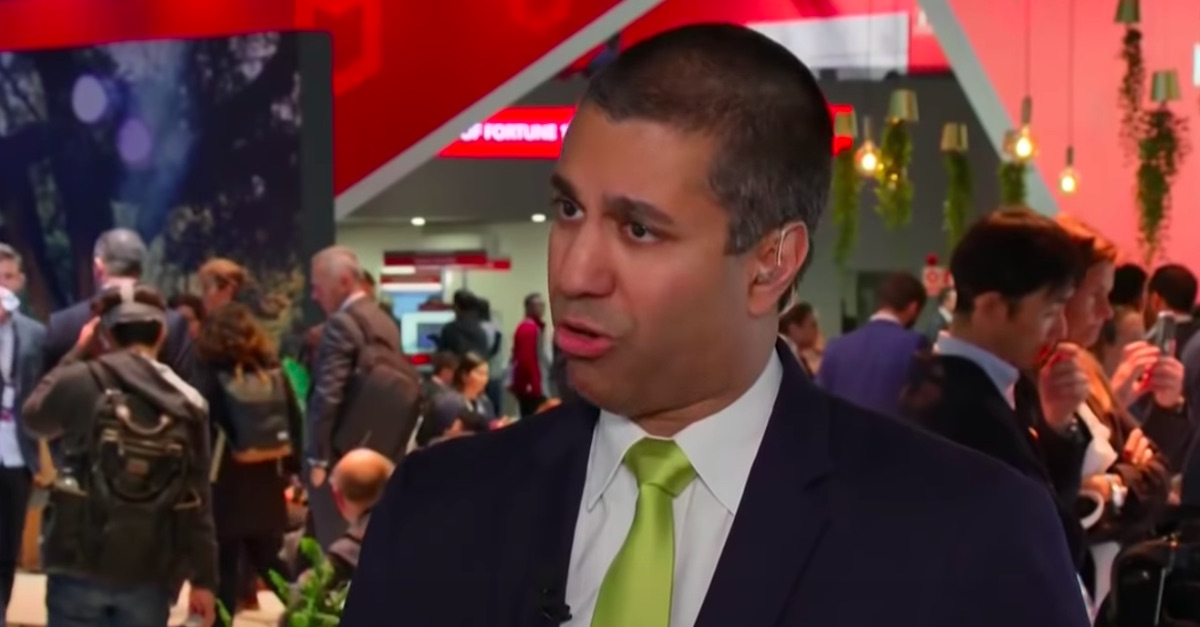
FCC Chairman Ajit Pai
As punishment for stealing the fire of knowledge from the gods, Prometheus suffered constant torment. Zeus had him bound to a rock and sent an eagle to peck away at his liver. As a brutal year draws to a close in 2020, local news outlets can relate.
The coronavirus reportedly closed more than 60 local newsrooms across the country, with grim consequences for the media workers they employed and the communities they served. A broad swath of them were swallowed up by conglomerates like CNHI and Forum Communications Company.
A plucky non-profit named Prometheus Radio Project hoped to staunch the bleeding by suing the Federal Communications Commission (FCC) to enforce rules regulating diversity in broadcast, an issue likely to resonate industry-wide. Prometheus won relief from a divided Third Circuit, before the FCC sought and won the right for Supreme Court review.
With oral arguments slated for Jan. 19, 2021, Prometheus just won the backing of nearly half of the nation’s attorneys general.
“Local news is crucial to the functioning of state and local democracies, and diversity is key to a robust local news system capable of reaching all state residents,” District of Columbia Attorney General Karl Racine wrote in a friend-of-the-court brief on Monday. “Unfortunately, financial pressures, increasing consolidation of news outlets, and misplaced reliance on the Internet have made communities’ news less local and less diverse.”
The states of California, Colorado, Connecticut, Delaware, Hawaii, Illinois, Maine, Maryland, Massachusetts, Michigan, Minnesota, Nevada, New Jersey, New Mexico, New York, North Carolina, Oregon, Pennsylvania, Rhode Island, Vermont, Virginia, and Washington joined that effort.
“The average media outlet is less likely to cover issues affecting communities of color, often underreporting issues like public safety, education, and fair housing,” the AGs wrote. “The dearth of trust-worthy coverage from sources that look and sound like their local communities can have negative effects on civic engagement and voting, to the detriment of states serving these residents.”
The AGs have scores of statistics and studies at their side to argue that the decline of local news has been ruinous for women and Black people. In 2018, Pew Research Center found that less than a quarter of newsroom workers are people of color, as compared to 45-percent of the broader U.S. work force, and the industry was also disproportionately male: with 39-percent of newsrooms staffed by women in comparison to 47-percent of the general workforce.
Though the diversity problem is industry-wide, they note that the gutting of local news outlets exacerbates that problem.
“Fostering ownership diversity promotes diverse media,” the brief states, citing the FCC’s findings. “At present, very few broadcast stations are owned by people of color or women.”
“Communities of color tend to be even more dependent on local media than the average population,” the AGs said, again citing a Pew study from this year. “For instance, Black Americans are ‘more likely to be interested in local news and to trust information from local news organizations more generally.'”
The attorneys general emphasized that this trust is particularly important during the coronavirus pandemic.
“Black Americans are more likely than other adults to turn to local news organizations and to trust them to get the facts right about COVID-19,” they wrote, citing the same study. “Local news thus provides public health officials a particularly useful channel of communication regarding, among other things, the disproportionate risks posed by the coronavirus for Black Americans.”
For Michigan Attorney General Dana Nessel, this trend was a motivating factor for joining the coalition.
“Minority broadcast ownership fosters the diversity of viewpoints among local media outlets, which ultimately enhances programming for all communities,” said Nessel. “Representation is crucial to reaching the communities an outlet serves, and I support the Third Circuit decision that concluded the FCC neglected to consider the impact of repealing these rules,” Nessel wrote in a statement. “Threatening local news and leaving representation by the wayside is not something that my colleagues and I can ignore.”
Away from the major cities, accurate news and information keeps drying up.
“These news deserts appear all across the country, but they disproportionately occur in rural areas—68 percent of U.S. counties without a daily or weekly newspaper are rural,” the amicus brief noted, citing a Brookings study from this past April.
When the FCC first sought high court review in April, the commission cast the issue as one of modernizing the media ecosystem.
“It’s unfortunate that the same divided panel of the Third Circuit yet again has blocked the Commission’s efforts to modernize our media ownership rules—the latest obstruction of Commission action and congressional intent in several cases over the last 17 years,” the commission’s Chairman Ajit Pai, a Donald Trump appointee, said earlier this year.
A friend of conservative behemoth Sinclair Broadcasting and foe of net neutrality, Pai’s revival of the long-dormant Prometheus case is in line with his longstanding deregulatory agenda, but Prometheus expressed hope that the justices would find the Third Circuit’s decision binding.
“The FCC blundered on the most basic level—as the Third Circuit found—using a numerical analysis that would fail statistics 101,” their lawyer Cheryl A. Leanza said in October. “The FCC continues to hold media ownership diversity as a key priority and yet repeatedly takes action that undermines that goal. The Third Circuit’s analysis was fully in accord with settled law.”
[Image via YouTube screengrab]
Have a tip we should know? [email protected]